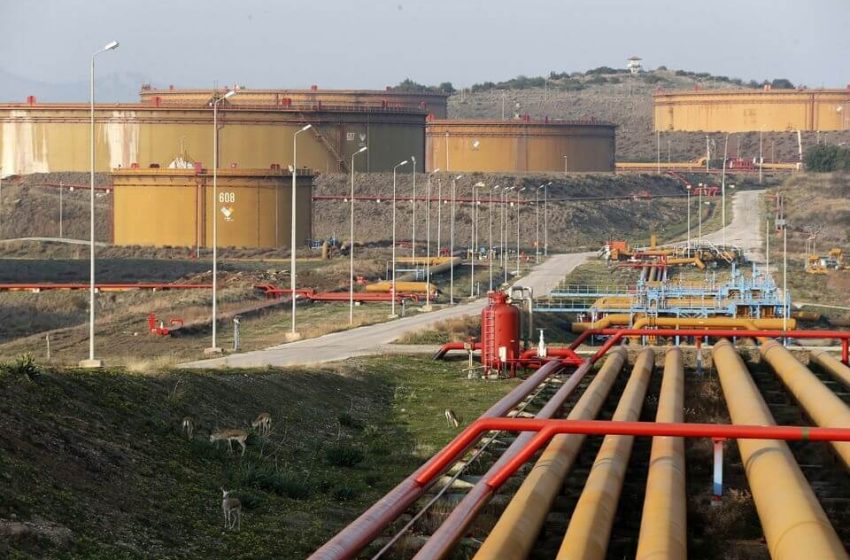Iraq to resume oil exports through Ceyhan after finishing pipeline maintenance

Oil tanks at Turkey’s Mediterranean port of Ceyhan. Photo: Reuters
Baghdad (IraqiNews.com) – The Iraqi and Turkish oil ministers stressed the need to resume oil exports after completing pipeline rehabilitation operations.
The Iraqi Minister of Oil, Hayan Abdul-Ghani, met in the Turkish capital, Ankara, with the Turkish Minister of Energy and Natural Resources, Alparslan Bayraktar, where they discussed joint cooperation in the fields of energy, oil and gas, electrical interconnection, and renewable energy, according to a statement issued by the Iraqi Oil Ministry.
The two ministers also discussed regional issues of common interest and highlighted the importance of the oil pipeline between Iraq and Turkey, emphasizing the need to resume crude oil flows after finishing the rehabilitation processes, which the Turkish side described as necessary after the earthquake that struck Turkey last February.
Both officials decided to hold the 19th meeting of the joint Iraqi-Turkish economic committee in Baghdad, where the date of the meeting will be set later.
Turkey stopped Iraq’s exports of 450,000 barrels per day through the oil pipeline that extends from the Kurdistan region of Iraq to the Turkish port of Ceyhan on March 25.
The 80-day halt of oil exports from the Kurdistan region of Iraq cost the Kurdistan Regional Government (KRG) more than $2 billion.
Turkey’s decision to suspend oil exports followed an arbitration decision issued by the International Chamber of Commerce (ICC) in Paris.
The decision obliged Turkey to pay Baghdad $1.5 billion in compensation for damages caused by the KRG’s export of oil without permission from the federal government in Baghdad between 2014 and 2018.
The KRG began exporting crude oil independently in 2013, a step Baghdad considered illegal.
Attempts to resume oil exports from Iraqi Kurdistan were delayed because of the Turkish presidential elections and discussions between the State Organization for Marketing of Oil (SOMO) and the KRG over an oil export deal.
The Kurdistan region of Iraq suffers from a lack of liquidity due to the suspension of oil exports through the pipeline.
Iraqi politicians and Kurdish lawmakers said that Iraqi Kurdistan had no other choice but to accept 12.67 percent of the $153 billion budget approved by the Iraqi Parliament.
